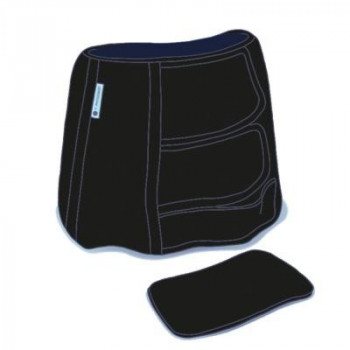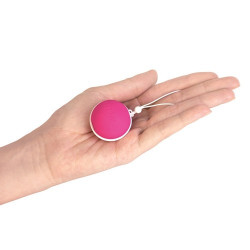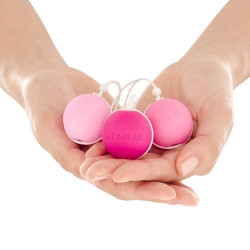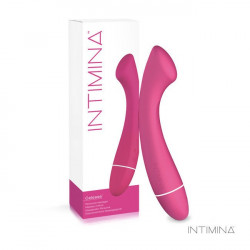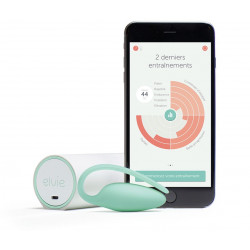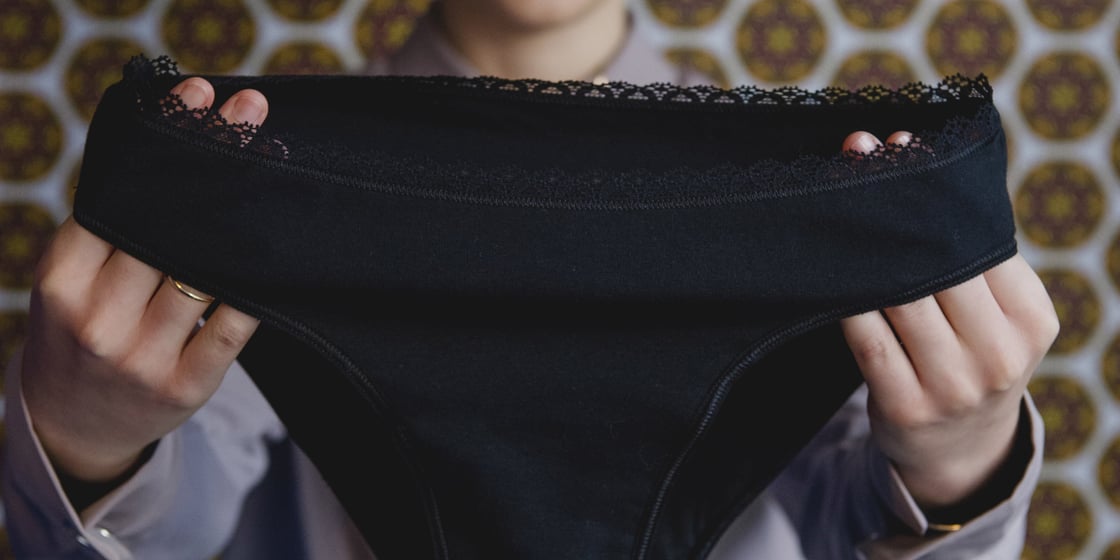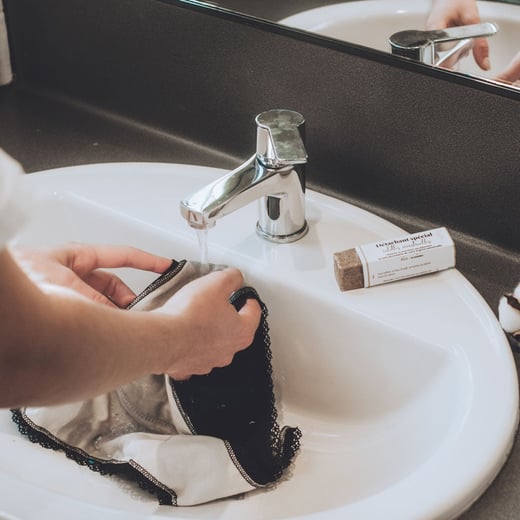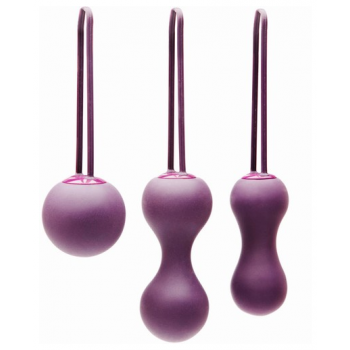



INTIMATE & SEXUAL WELL-BEING

BOOKS & GUIDES

PRODUCTS
Simplified payment methods



THE UNAVOIDABLE
Newsletter
You can unsubscribe anytime.
For this you will find our contact information
in the terms of use of the site.
MEDICAL PRODUCTS FOR PROFESSIONALS
OUR ADVICES

HANDYLOVER
The HandyLover was born from an astonishing thought, "it's sad not to be able to make love for the rest of your life, it must be a long life without sexual pleasure," This observation gave rise to an idea, to create material allowing you to move and have sex like everyone else (you just need a little more imagination). I surf on a wave to create what others do not imagine. It's so exhilarating to be able to offer new sensations in the movement and performance of the body!
I can promise you that anything is possible, if you want it. And if you are afraid of lacking imagination, leaf through my handysutra…
Those who think it's impossible, please don't disturb those who try.
HandyLover is a mobile seat designed to help people with disabilities gain autonomy during sexual intercourse.
Thanks to its inventive system, it reproduces a movement back and forth and thus facilitates free and fulfilling sexuality.
This real portable sexual assistant will allow men to find a real bond with their partner while limiting efforts. New positions and sensations will now be possible.
The pessary is a safe, effective and simple medical device, offering a non-invasive and reversible solution to a number of pelvic-perineal disorders. This is a first-line, so-called “conservative” treatment for all women suffering from genital prolapse and/or stress urinary incontinence, allowing them to restore their quality of life and their freedom.
Designed to be inserted at the bottom of the vagina, the pessary makes it possible to reposition the organs concerned in order to relieve the woman of her symptoms , by limiting the functional discomfort of the prolapse and/or by restoring control of the urinary flow. It therefore aims to reduce or eliminate the symptoms of prolapse or weakness of the pelvic floor.
The pessary is a great tool at the service of women and their intimate health . It is, moreover, complementary to all other approaches in the treatment and/or prevention of pelvic floor disorders.
Does your perineum show signs of weakness? you have less intimate sensations in your sexuality, rare urinary losses or more important small leaks when you laugh, cough or make an effort? Now it's easy to regain control of your perineum yourself!
Whether you want to maintain your perineum by prevention or because you already have more or less embarrassing inconveniences, you will surely find the solution for you thanks to our large selection of products for the perineum!
The perineum is a muscle like any other that you have to think about
tone daily. No matter our age and our situation, we are all concerned.
Because intimate and sexual well-being is important in the life of a woman or a couple.
Find here all the products to remedy it:
Vaginal balls to tone your perineum,
Vaginal dilators to relieve the problems of vaginismus or vaginal atrophy,
Intimate masseurs to find better intimate sensations,
Specific TENS devices to relieve menstrual pain and those related to endometriosis or others
And also specific accessories for a fulfilling, more subtle and gentle sexuality
Some women experience a panic fear of penetration. This disorder that can be overcome by combining cognitive-behavioral therapy and physiotherapy.
Like the tropical flower Mimosa pudica, which closes in seconds when touched, some women's vaginas contract to prevent penetration. Called vaginismus, this sexual disorder was described in the 19th century.eCentury. “It is defined by a reflex contraction of the muscles of the perineum, says Dr Véronique Bonniaud, specialist in physical medicine and rehabilitation, head of the pelvic-perineology unit at the Dijon University Hospital. The muscle tension is so strong that it can make it impossible to introduce a finger or a tampon without causing pain.
Vaginismus is not related to an abnormality of the vagina or a gynecological disease. “The fear of pain is the first symptom in these women who very often suffer from a lack of information about their own sex and its representation, explains the specialist. They think, for example, that they have a vagina that is too small to accommodate a penis. Misconceptions that activate anxiety, even a panic fear of penetration. The family background plays an important role in the construction of these erroneous beliefs. These can be reinforced by moral or religious prohibitions. These women have never dared to discover themselves, and have never had a relationship with penetration. This does not prevent them from experiencing a sexual life, and even from reaching orgasm.
An agonizing situation
Despite everything, their suffering is great. They sometimes feel guilty for not having a “normal” sexuality, and fear putting their couple in danger. “Generally, they consult when the couple is in crisis, or when they want to have a child”, reports Dr. Véronique Bonniaud, who specifies that between 6 and 15% of sexology consultations concern vaginismus. However, it is estimated that only 1% of women are affected.
Their care is based on listening to their anxieties and actively discovering their anatomy. “The first step is the reappropriation of this intimate area so that it no longer becomes a taboo. With a physiotherapist specializing in pelvi-perineology, women will learn to know their sex on anatomical boards, then about themselves using a mirror”, describes Dr Bonniaud. The physiotherapist will also teach them relaxation exercises to relax the perineum, and gently accompany them towards exploration. “Once they have managed to touch themselves, they can be offered to use vaginal dilators, medical devices in the form of a tampon. The objective is not to dilate the vagina, but to show patients that it can accommodate a man's penis without causing pain,” explains the specialist.
Psycho-sexual solutions
Alongside these bodily approaches, psycho-sexual support is essential. Cognitive-behavioral therapy (CBT) or hypnosis can help these women change their automatic thoughts, fears and resulting behaviors. "We use, for example, the metaphor of the opening of the rosebud, she illustrates before adding: as long as the negative and erroneous images are present, the involuntary spasms will not disappear."
This sexual re-education has proven itself. The scientific literature shows that more than four out of five women were able to have intercourse with penetration after six to seven sessions of physiotherapy and CBT. “I meet former patients who are now mothers, reassures Dr. Bonniaud. Overcoming vaginismus is entirely possible.”
| ||||||||||||||||||||||||||||||||||||||||||||||||||||||||||||||||||||||
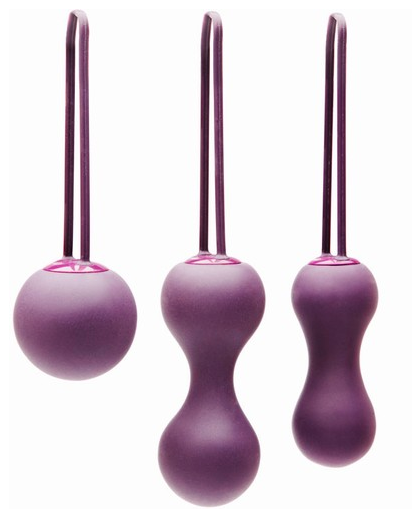
rinsing
As soon as possible after wearing your panties, rinse them in cold water, until the water runs clear. You can then keep it dry, waiting for the next machine!
Washing
A machine wash at 30 or 40° is the most suitable. You can use our ecological washing net to protect the laces of your lingerie. We strongly recommend a hypoallergenic detergent without added glycerin, like our special period panty detergent. Indeed it prolongs the life of your menstrual panties by maintaining the absorbency throughout the years. 
Drying
Above all, no drying in the dryer: dry your panties in the open air! Admittedly, it will take longer, but you won't damage the absorbent part of your lingerie (and you're also doing something for the environment)! 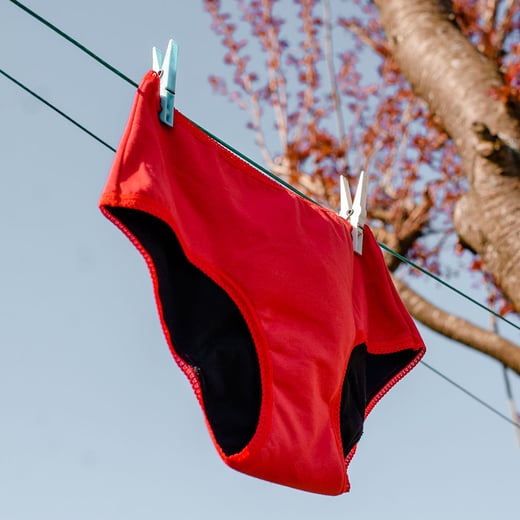
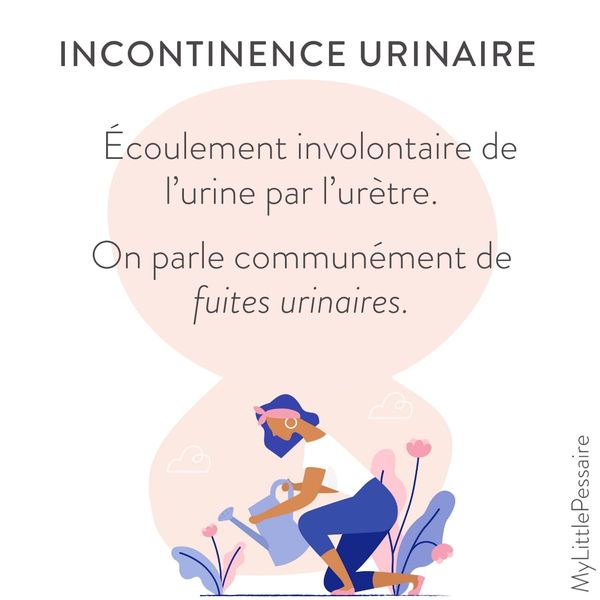 is a urination disorder (urination = action of urinating) characterized by the involuntary flow of urine through the urethra. We often speak of "urinary leakage".
is a urination disorder (urination = action of urinating) characterized by the involuntary flow of urine through the urethra. We often speak of "urinary leakage". 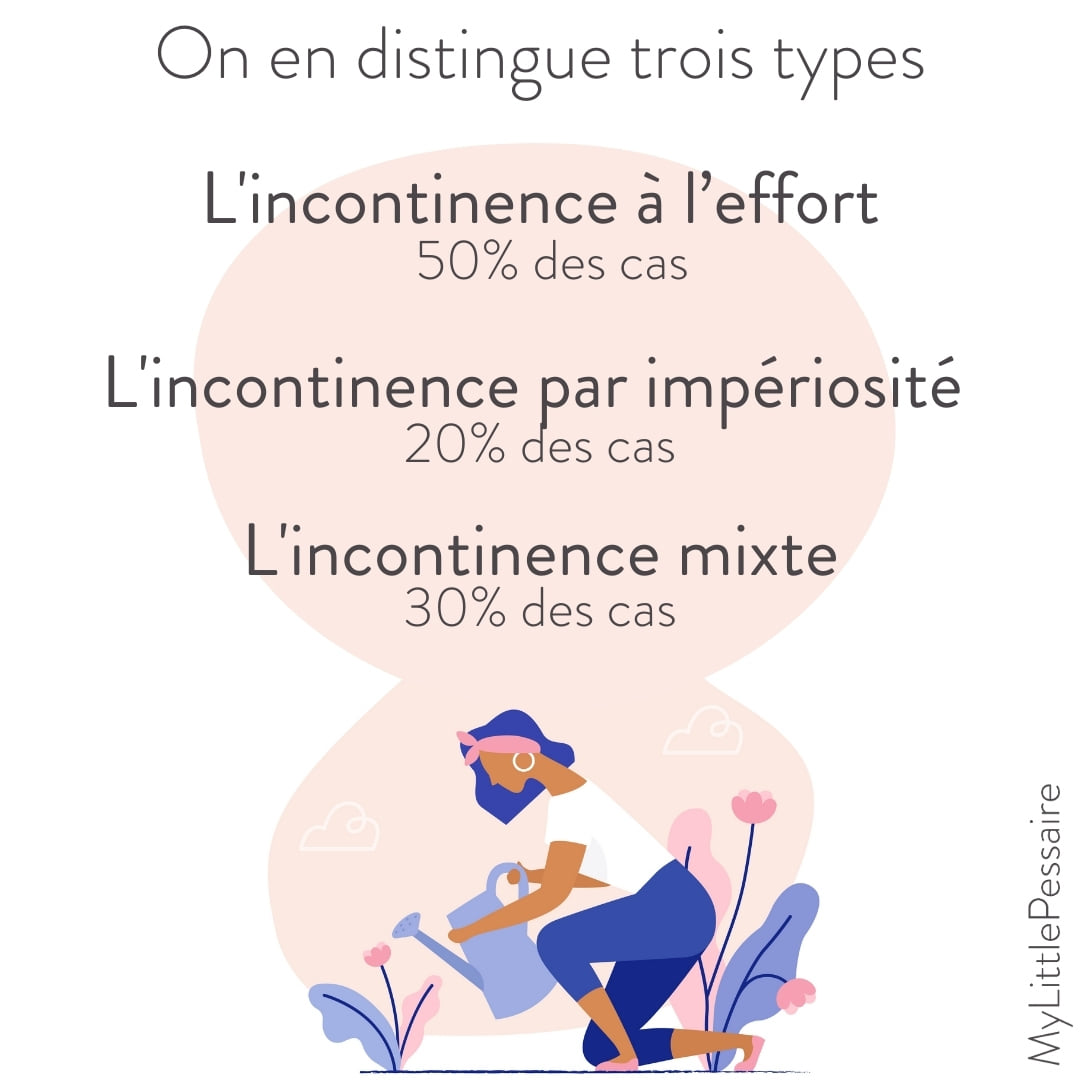
1 in 3 women is subject to these inconveniences and more and more men are experiencing this harsh reality. We have implemented all our know-how to finally offer effective, gentle, ecological and economical solutions for urinary leakage, anal discharge, enuresis and incontinence. Intimate urinary protections adapted to the absorption needs and the respective anatomy: Woman and Man.
Be zen, we take care of you gently!
Whether you want to maintain your perineum by prevention or because you already have more or less embarrassing inconveniences, you will surely find the solution for you thanks to our large selection of products for the perineum!
The perineum is a muscle like any other that you have to think about
tone daily. No matter our age and our situation, we are all concerned.
What is nocturnal enuresis?
Your child "wets the bed": at what age should you worry?
Enuresis, also called "bedwetting", refers to repeated, involuntary, uncontrollable, unconscious and most often nocturnal urination. The child urinates completely and normally without realizing it during sleep.
Bedwetting occurs in children at an age when sphincter control is acquired, i.e. after the age of five . It is a disorder of bladder control that otherwise functions normally.
When not associated with any other urinary disorder, enuresis most often resolves spontaneously. However, enuresis must be taken care of because it affects the life of the child and his family, causing:
- a drop in self-esteem for the child,
- disruption of family and social life.
How does the child acquire potty training and at what age does he no longer wet the bed?
Significant variations exist from one child to another:
- the first year, the action of urinating is a reflex, triggered by the pressure in the bladder, beyond a certain threshold;
- from the end of the first year, the child urinates consciously and voluntarily. He signals that he wants to urinate by words or gestures;
- around 18 months, he can tell his parents if he is wet. He quickly learns where and when to urinate;
- at two years old, the child can be clean during the day;
- from the age of three, urination is regulated automatically. The child can, in principle, sleep safely. In case of desire, it voluntarily contracts the sphincter and the muscles of the perineum
. At three years old, 15 to 20% of children have acquired nocturnal cleanliness, and 90% at five years old.




